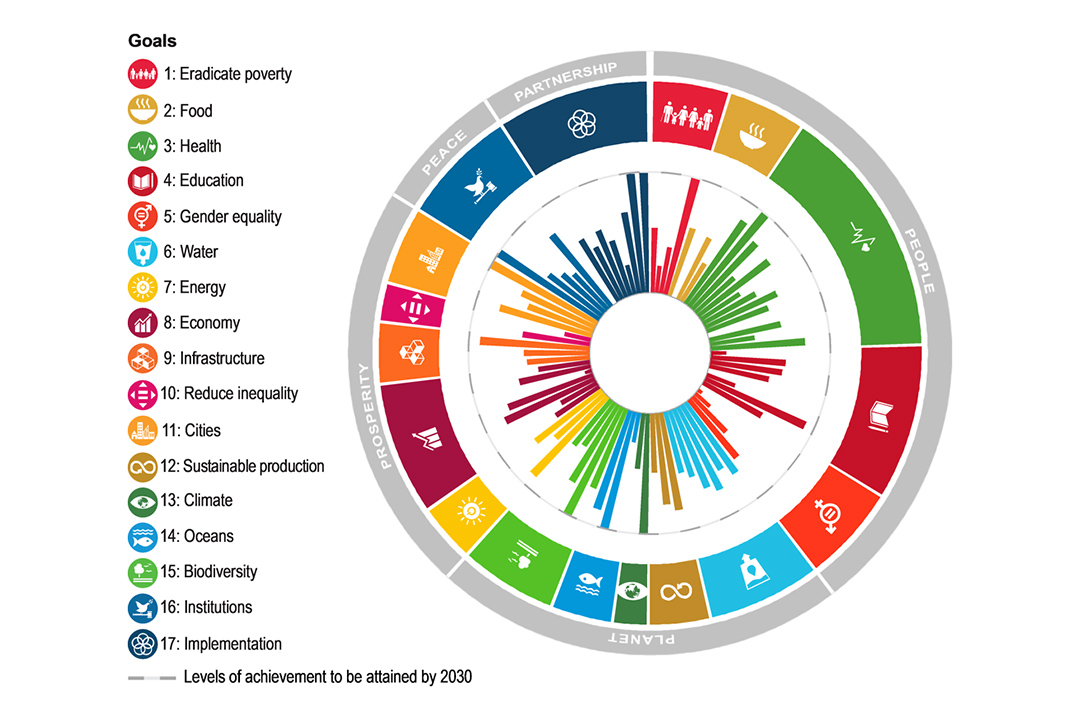20 May 2019: The Organisation for Economic Co-operation and Development (OECD) has released an updated assessment of each OECD country’s progress towards the SDGs. Overall, the report finds that OECD countries need to accelerate efforts to leave no one behind, particularly to achieve SDG 1 (no poverty), SDG 5 (gender equality) and SDG 10 (reduced inequalities), and to achieve certain educational and employment outcomes, healthy behaviors, violence and safety, and human rights.
The third edition of the yearly report titled, ‘Measuring Distance to the SDG Targets 2019: An Assessment of Where OECD Countries Stand,’ assesses OECD country performance across the SDGs and their targets. On average, most OECD countries are closest to achieving SDG 7 (affordable and clean energy), SDG 11 (sustainable cities and communities) and SDG 13 (climate action). Countries are also performing well on SDG 6 (clean water and sanitation), SDG 12 (responsible consumption and production), SDG 14 (life below water) and SDG 15 (life on land). Most OECD countries have widespread access to basic sanitation (SDG target 6.2), electricity (SDG target 7.1) and mobile networks (SDG target 9c). OECD countries have met targets on maternal and infant mortality (SDG target 3.1 and 3.2) and reducing deaths from AIDS, tuberculosis, hepatitis B (SDG 3 target 3.3) and road accidents (SDG target 3.6). Countries have also made progress on adopting renewable energy sources (SDG target 7.2).
More than one-third of SDG targets cannot be assessed in OECD countries.
On other targets, the report finds that countries are “moving in the wrong direction,” and are furthest from reaching SDG 2 (zero hunger), SDG 5, SDG 10 and SDG 16 (peace, justice and strong institutions). In addition:
- One in seven people in OECD countries live in poverty (SDG target 1.2);
- Vaccination coverage is decreasing in 13 countries, posing risks to diseases previously eradicated (SDG target 3.8), and obesity has risen in one-third of OECD countries (SDG 3);
- One in four 15-year-olds and adults lack basic numerical competency (SDG target 4.1) and 14% of youths are not in education, employment or training, with higher percentages in Italy, Turkey, Chile, Mexico and Spain (SDG target 4.3);
- On gender equality, women hold fewer than one-third of seats in national parliaments, on average, in OECD countries, and no country has achieved equal representation (SDG target 5.5);
- Six percent of women across the OECD report being subjected to violence by a partner in the last 12 months, making all of the countries far from SDG target 5.2 to eliminate all forms of violence against women and girls;
- Medium-term gross domestic product (GDP) and productivity growth (SDG 8) are “on the wane” in many countries; and
- In two-thirds of OECD countries, the number of threatened species has increased (SDGs 14 and 15).
The report raises concerns about data gaps, noting that “more than one-third of SDG targets cannot be assessed in OECD countries.” Available data only allowed for assessing 105 of the 169 targets. Data coverage is best on SDGs 3 and 4, and it is poorest on the “environment-related” Goals, particularly SDGs 12 and 14.
The report finds that more than half of the SDG targets require a transboundary effort, meaning that achieving these 97 targets in one country will have an impact on neighboring countries, other countries or on global goods, such as climate change and sustainable fishing. However, indicators are only available for 31 of these targets, with the result of “considerable data gaps for understanding the global and inter-connected aspects of the 2030 Agenda and its implementation.” Out of the 97 transboundary targets, 50 are means of implementation targets relating to financing and supporting developing country efforts to achieve the SDGs. Transboundary targets are also heavily concentrated in the planet-related Goals, the authors note.
Speaking at the report’s launch, OECD Secretary-General Angel Gurría said the SDGs and the objective of leaving no one behind are a promise and responsibility to future generations, and “we are very far from being able to declare mission accomplished.” He called on countries to redouble their efforts and work together to ensure that the SDGs are achieved within the deadline.
OECD launched the report at the annual OECD week, which convened at OECD headquarters from 20-23 May 2019, in Paris, France. [OECD Press Release] [Publication: Measuring Distance to the SDG Targets 2019] [OECD Week]
SDGs
Issues
- Agriculture & Food Security,
- Follow-Up and Review,
- Sanitation,
- Energy Poverty/Access,
- Biodiversity,
- Climate Change,
- Economics & Investment,
- Renewables,
- Energy,
- Gender,
- Governance,
- Health,
- Human Rights & Indigenous Peoples,
- Human Settlements & Population,
- Monitoring & Evaluation,
- Oceans & Coasts,
- Poverty Eradication,
- Sustainable Consumption & Production,
- Sustainable Development,
- Water & Sanitation
